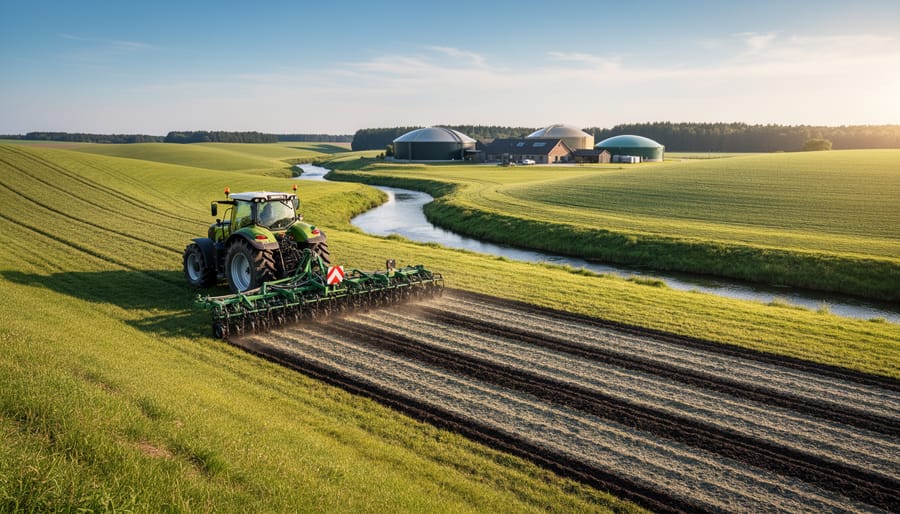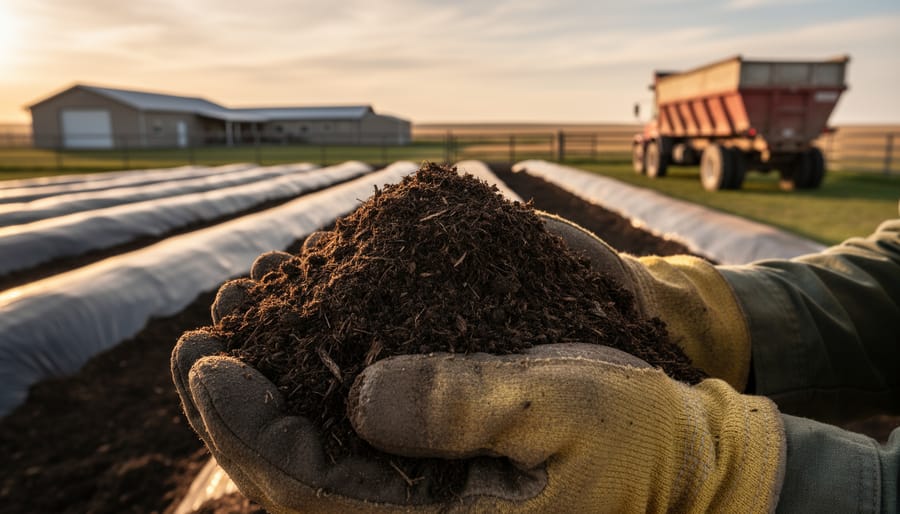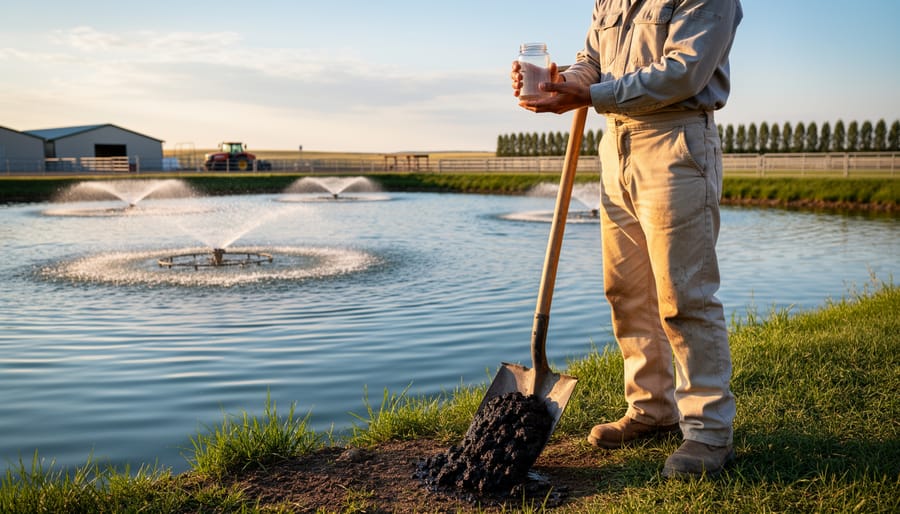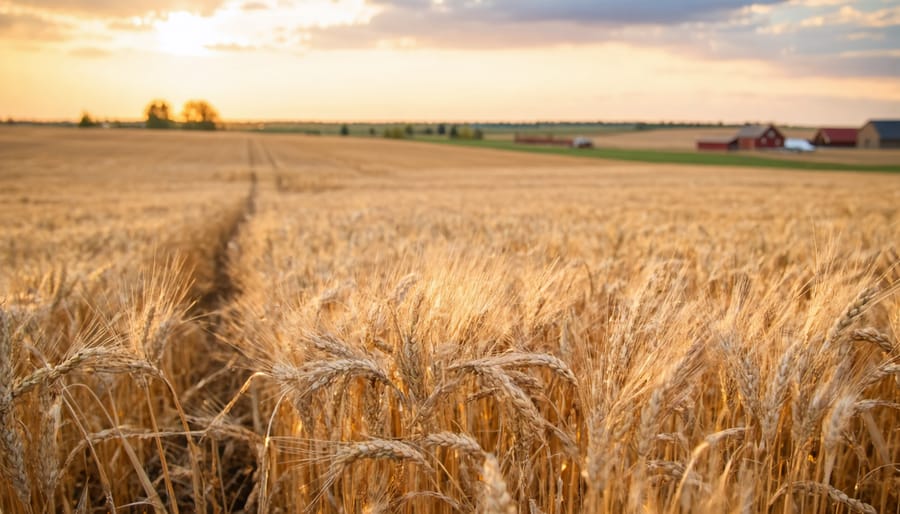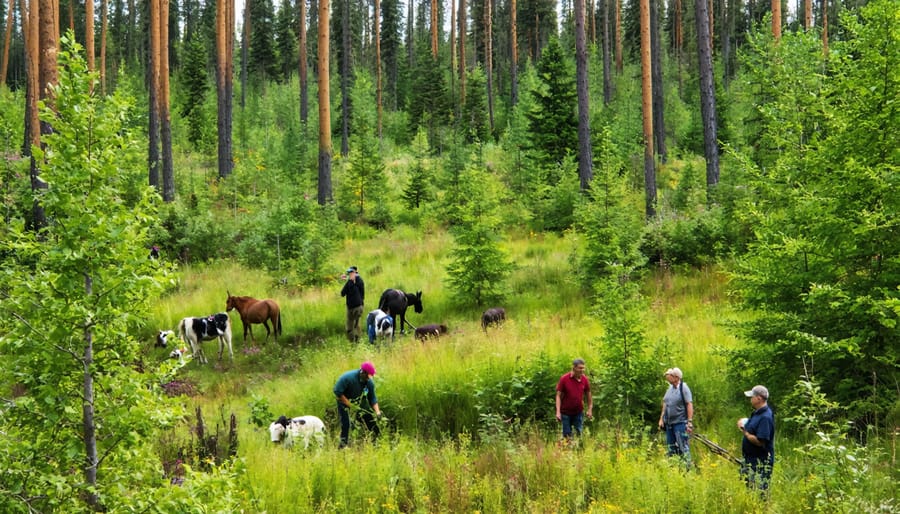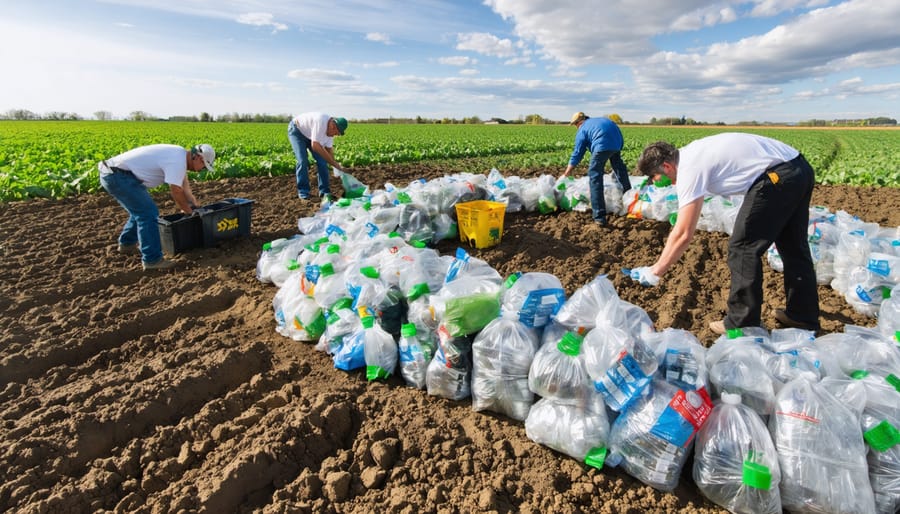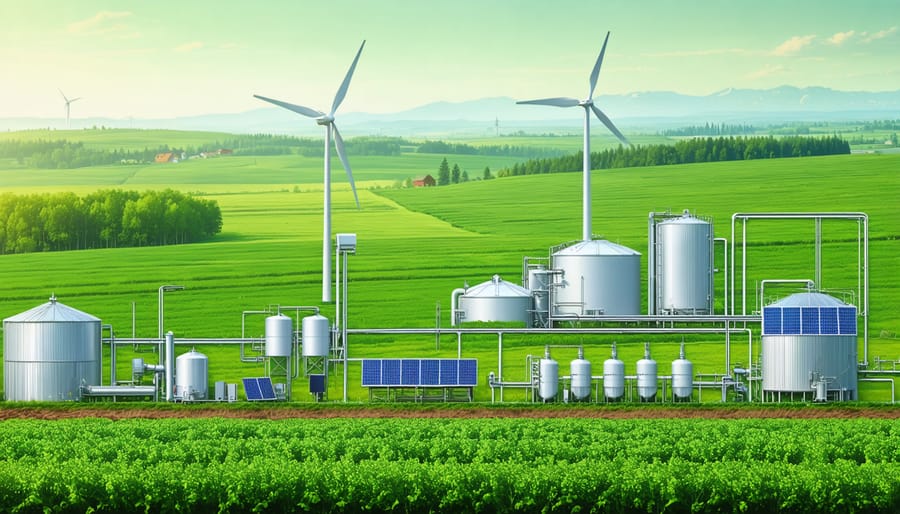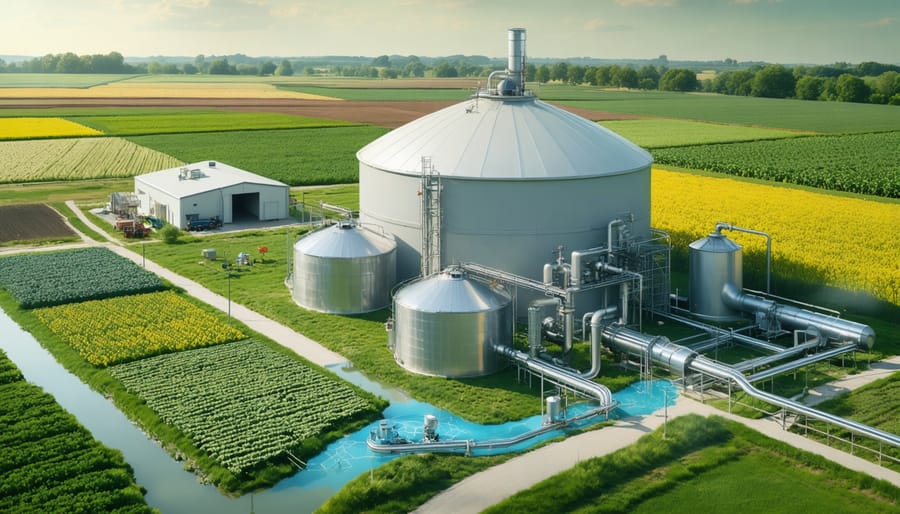As a Canadian farmer, you have the power to make a real difference in the fight against climate change while improving the long-term viability of your agricultural operation. The Albert Sustainable Production Certification provides a clear roadmap to adopt environmentally responsible practices that benefit your land, your community, and your bottom line. By meeting rigorous standards for soil health, water conservation, biodiversity, and greenhouse gas reduction, you’ll join a growing movement of forward-thinking producers who are leading the way to a more sustainable future for Canadian agriculture. Gain a competitive edge with consumers increasingly seeking out sustainably grown products and access valuable support to continuously improve your practices. Together, we can build a more resilient food system that will thrive for generations to come – and it starts with the stewardship of visionary farmers like you earning this prestigious certification. Let’s explore how the Albert Sustainable Production Certification can help you cultivate a legacy of sustainability and success.

The Pillars of Albert’s Sustainable Production Certification
Carbon Footprint Reduction
The Albert Sustainable Production Certification empowers farmers to minimize their carbon footprint through innovative techniques and technologies. By adopting practices such as precision agriculture, which optimizes resource use and reduces waste, farmers can significantly decrease their greenhouse gas emissions. The certification also promotes the use of renewable energy sources like solar power and biofuels, further reducing reliance on fossil fuels. Additionally, the program encourages farmers to implement carbon sequestration methods, such as planting cover crops and practicing no-till farming, which help to capture and store carbon in the soil. By providing guidance and support in adopting these sustainable practices, the certification enables farmers to play a crucial role in combating climate change while maintaining productive and efficient agricultural operations. Through their commitment to reducing their carbon footprint, certified farmers demonstrate their dedication to environmental stewardship and contribute to a more sustainable future for Canadian agriculture.
Soil Health Enhancement
The Albert Sustainable Production Certification recognizes the crucial role that healthy soil plays in sustainable agriculture. By promoting practices that enhance soil quality and fertility, the certification helps farmers maintain the long-term productivity of their land. Techniques such as cover cropping, crop rotation, and reduced tillage are encouraged to prevent soil erosion, improve soil structure, and increase organic matter content. These practices not only benefit the environment but also lead to healthier crops and better yields. The certification provides guidance and support for farmers looking to implement these soil health strategies on their farms. By prioritizing soil health, the Albert Sustainable Production Certification ensures that agricultural land remains fertile and productive for generations to come, while also contributing to the overall sustainability of the farming community in Alberta and beyond.

Sustainable Resource Management
The Albert Sustainable Production Certification emphasizes the importance of responsible resource management. Water conservation is a key focus, with certified producers implementing strategies like drip irrigation, rainwater harvesting, and moisture monitoring to minimize water waste. Energy efficiency is another crucial aspect, with farms adopting renewable energy sources such as solar panels and wind turbines to reduce their carbon footprint. By optimizing resource use, certified producers not only protect the environment but also lower their operating costs. The certification provides guidance and support to help farmers implement these sustainable practices effectively.
Benefits for Alberta Farmers
Expanded Market Opportunities
The Albert Sustainable Production Certification can significantly expand market opportunities for farmers. By earning this certification, producers demonstrate their commitment to sustainable practices, which is increasingly valued by consumers, retailers, and food industry partners. This recognition can open doors to new customers who prioritize sustainably produced goods, both within Alberta and beyond. Certified farmers may have access to premium markets, specialty retailers, and conscientious consumers willing to pay more for products that align with their values. Additionally, the certification can help farmers differentiate their products and stand out in a competitive marketplace, potentially leading to increased sales and long-term business growth.
Strengthened Community Relations
Participating in the Albert Sustainable Production Certification demonstrates a strong commitment to environmental stewardship and helps strengthen relationships with local communities. By adopting sustainable practices, farmers show their dedication to preserving the land and natural resources for future generations. This commitment fosters trust and goodwill among neighbors, as the community recognizes the farmer’s efforts to minimize their environmental impact. Engaging in open dialogue and transparency about sustainable practices can further enhance these relationships. Moreover, certified farmers often collaborate with local organizations on conservation projects, educational initiatives, and community events, deepening their connection to the area and its residents. Through these efforts, farmers become valued partners in building a more sustainable and resilient community.
Long-term Economic Viability
Adopting sustainable practices through the Albert Sustainable Production Certification can lead to long-term economic benefits for farmers. By optimizing resource use and minimizing waste, farmers can reduce input costs associated with fertilizers, pesticides, and water. Implementing soil health practices, such as cover cropping and reduced tillage, can improve soil fertility and structure over time, leading to more consistent yields and reduced reliance on external inputs. Moreover, by building resilience to climate change through diverse cropping systems and water conservation measures, certified farms can better withstand extreme weather events and maintain productivity in the face of changing conditions. These cost savings and risk mitigation strategies contribute to the long-term financial stability and viability of Alberta farms.
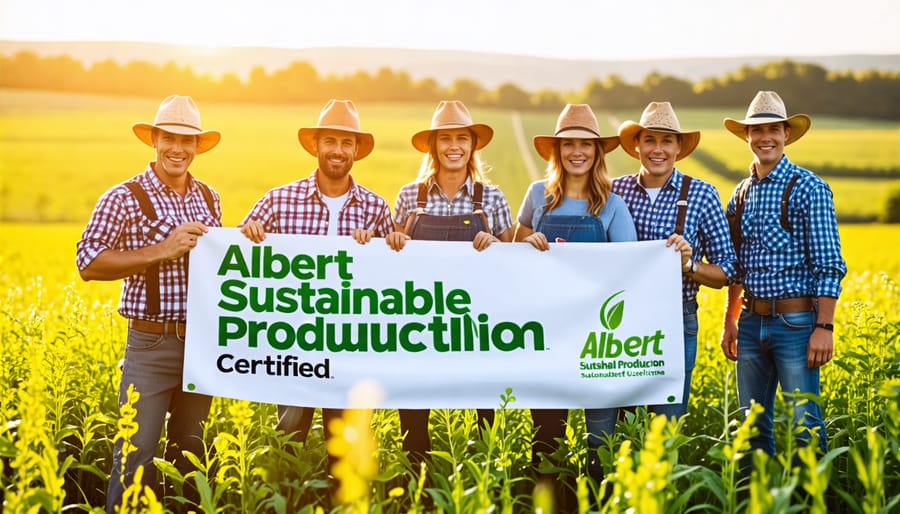
Success Stories and Case Studies
Here are success stories and case studies of Alberta farmers who have implemented the certification and seen positive impacts, written in a clear, informative style with accessible language for a Canadian farming audience: John and Mary Smith, grain farmers near Lethbridge, adopted the certification five years ago. By implementing no-till practices and planting cover crops, they have increased their soil organic matter by 2% and reduced erosion. “Our fields are healthier and more resilient now,” says John. “And we’re saving on fuel and inputs too.” The Smiths are proud to display their certification and share their experience with other farmers. The Maple Leaf Cattle Company, a ranch in the foothills of the Rockies, has embraced rotational grazing and streamside management under the program. “Moving our cows to fresh pasture regularly has improved weight gains and conception rates,” notes ranch manager Lisa Brown. Stream fencing and off-site watering have boosted water quality and wildlife habitat. The ranch now welcomes school groups to learn about sustainable beef production. Twin Pines Dairy near Red Deer uses the certification to demonstrate their commitment to animal welfare and environmental stewardship to customers. Installing a manure separator and switching to compost bedding has enhanced cow comfort and reduced methane emissions from the manure system. “It’s a win-win for the cows, the environment, and our bottom line,” says herd manager Amir Singh. The dairy has gained shelf space for their milk in local grocery stores based on their certified sustainable practices. These Alberta producers are proving that sustainability and profitability can go hand-in-hand. By sharing their stories, they are building public trust in agriculture and inspiring other farmers to adopt leading practices through the power of certification. As the program grows, its positive impacts ripple out across the province.
Conclusion
In conclusion, the Albert Sustainable Production Certification represents a significant step forward in promoting sustainable agriculture practices in Canada, particularly in the Alberta region. By focusing on key areas such as soil health, water conservation, biodiversity, and emission reduction, this certification offers a comprehensive framework for farmers to adopt more environmentally friendly and socially responsible practices. The success stories highlighted in this article demonstrate the tangible benefits of adopting sustainable practices, including improved crop yields, reduced input costs, and enhanced community engagement. As the demand for sustainably produced food continues to grow, the Albert Sustainable Production Certification is poised to play a crucial role in shaping the future of Canadian agriculture. We encourage all farmers and agricultural professionals to explore this certification further and consider how it can benefit their operations, their communities, and the planet as a whole.


